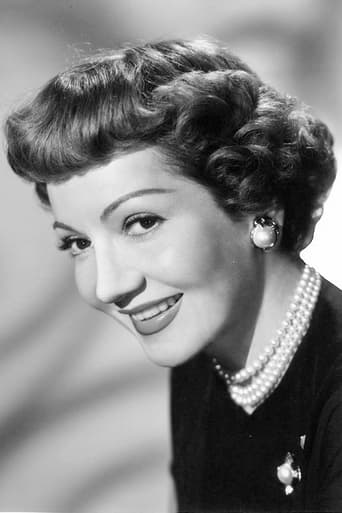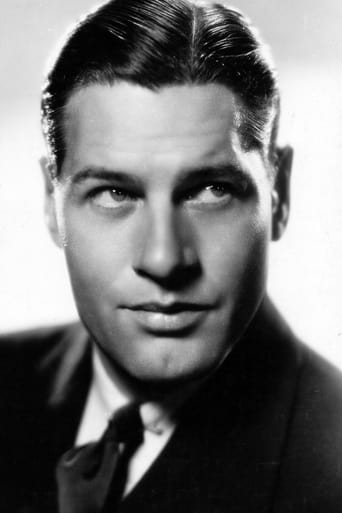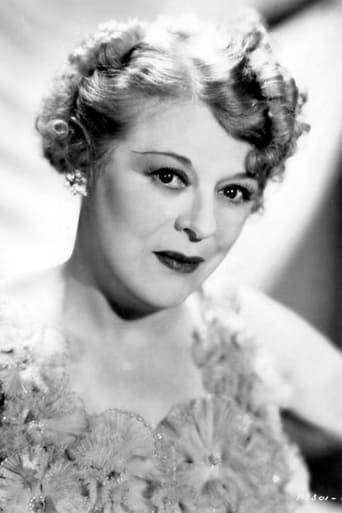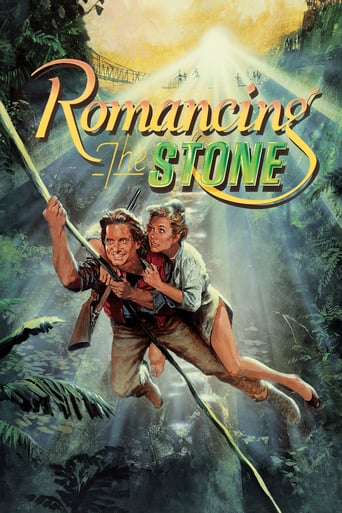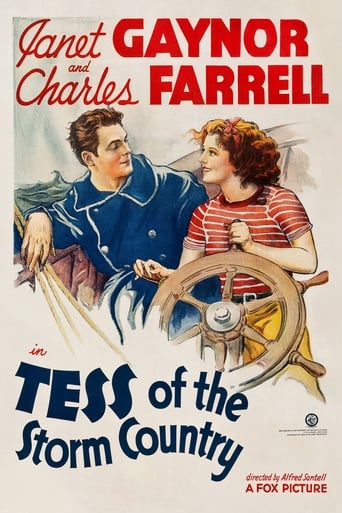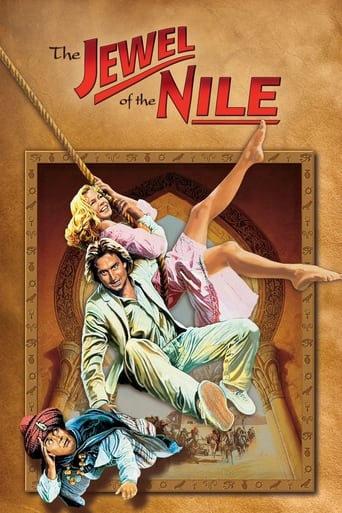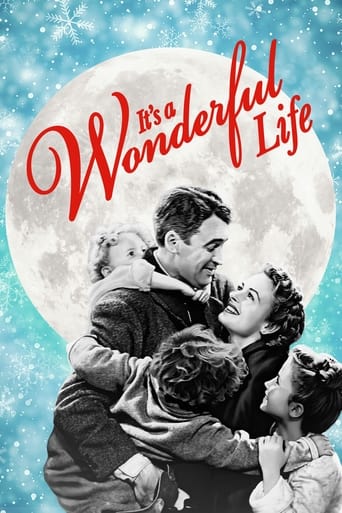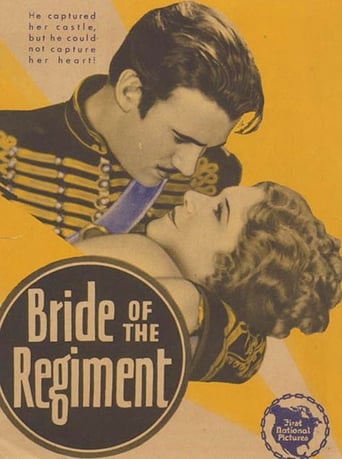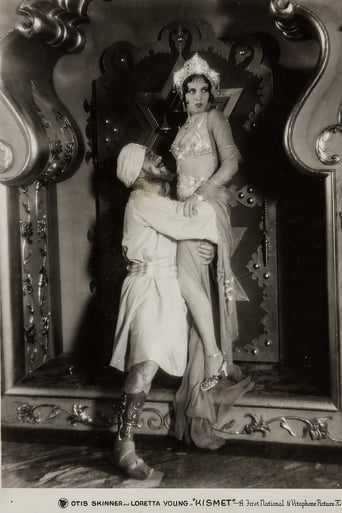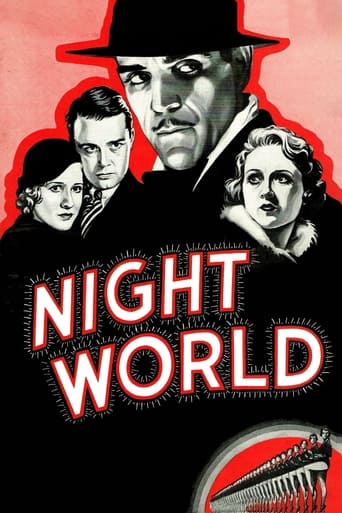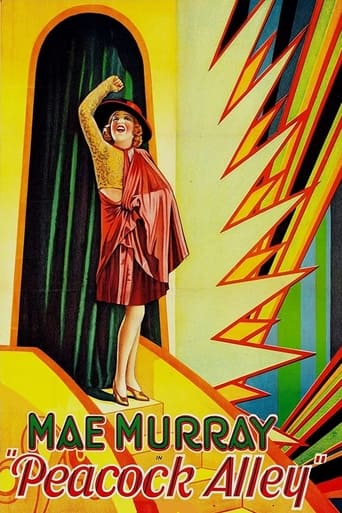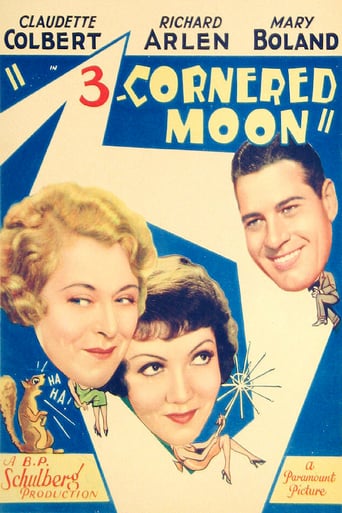
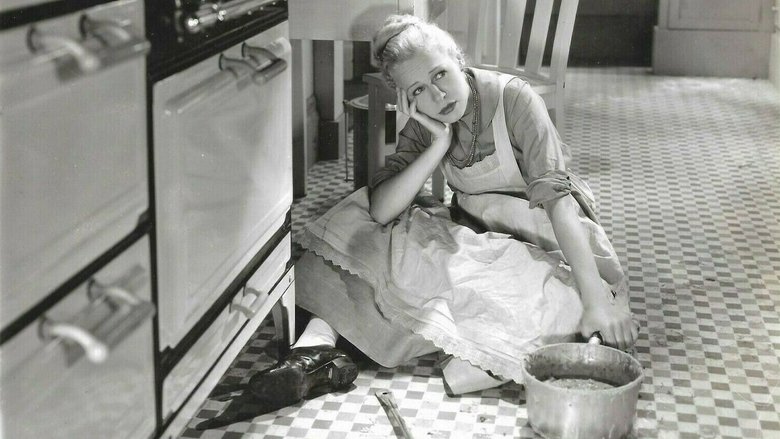
Three-Cornered Moon (1933)
Elizabeth Rimplegar inhabits a household populated by virtual lunatics. Her mother, Nellie, mishandled the family fortune, and, alas, the stock market crash has depleted their worth. Elizabeth's goofy brothers cannot easily adjust to the life of the average worker. Meanwhile, the family doctor has his eye on Elizabeth, but he will have to compete with her suitor, an ill-informed writer.
Watch Trailer
Cast


Similar titles
Reviews
This movie is indeed astonishing: it starts out like some silly, light comedy about an upper-class Brooklyn family, living, without a care in the world, in a big house with servants and everything, exclusively on money from their stocks. BUT then the Depression reaches even their home: practically overnight, they find themselves flat broke. And, having lived for so long in their 'castle in the skies', they just haven't got any idea about what to do at first.And then they start waking up: the only way out for the three grown boys and the girl is - to FIND A JOB! And that's what they do, and where they first meet with the difficulties of REAL life; and so, one by one, they wake up to reality - and they finally discover that they LIKE it: from being lazy parasites, they've become useful members of society...Of course, it's by FAR not as 'educational' a picture as this may sound - anyway, it's a pre-Code movie, and it's got lots of frivolous and funny moments to provide first-class comedy entertainment. The cast is great, from Claudette Colbert as the daughter of the house who's got to choose between a daydreaming writer and a down-to-earth doctor, to Mary Boland as the 'lady of the house' who just doesn't seem to know at all what's happening, to Lyda Roberti, no less - the seductive 'Million Dollar Legs' beauty from the 1931 W.C. Fields movie - , who plays the Polish cook here who never seems to understand a word in English, but stays with the family nonetheless, even without pay; a real proof of her great acting range! And yet, the message is there, even amidst all the hilarious fun - and it's MOST up-to-date, too: today, there are breadlines and people on the dole everywhere again, and formerly well-to-do families who now have to WORK for a living; and once you've got used to it (and have been as lucky as to FIND a job), you UNDERSTAND. You understand that it feels GOOD to be a useful member of society instead of an idler that lets others feed him... QUITE a message for a 'simple' comedy that's pretty much underestimated today in comparison with many of its other, much more forgettable contemporaries!
In DeWitt Bodeen's superb career article on Richard Arlen (Films in Review June/July 1979) he related that Arlen had never wanted to be a star - he was far happier with the roles that Paramount found for him than the "star" roles handed out to others. The "dependables" often had careers as long as they wanted to act - critics could always pan a star but an actor who had a key supporting role was often praised for making the pictures worth watching. This was why, after playing the oldest college footballer (along with Jack Oakie) in movie history in "College Humor", he was immediately cast as Alan Stevens, the affable doctor in "Three Cornered Moon", which actually is the name of the mining stock that loses the family their fortune.This was an early example of the type of nutty comedy that became more popular as the decade progressed. It was all about the zany Rimplegar family who found themselves on the employment line when the Wall Street crash obliterated their wealth. A typical morning at the Rimplegars consists of zany mother Nellie (wonderful Mary Boland) making pancakes in her feathered nightgown ("the children would feel hurt if I didn't wear it") but can't cook them as feisty Jenny (Lyda Roberti) proclaims (all throughout the movie) "go way - the stove, she's mine"!! Where would the movies be without Lyda - at one stage she is told a bunch of flowers is called a George, so whenever she sees a flower she says "George, beautiful George" - she's a scream!!! There is also Kenneth (Wallace Ford) who is having woman trouble, Douglas (William Bakewell), an aspiring actor who is forever rehearsing his line!!! while Elizabeth (Colbert) ponders the meaning of life.She soon finds out as, through their mother's incompetence, they suddenly find themselves broke and desperately in need of jobs. Dr. Stevens walks into their catastrophe and he gives them a lecture on the realities of life and forces them all to look for work. Douglas finds an acting job with an even shorter part - "Yes"!! Young Eddie (Tom Brown), home from college finds a job as a lifeguard while Elizabeth gets one as a machinist but has to fend off her amorous married boss then has to come home to her novelist beau, Ronald (Hardie Albright) who lives in a fantasy world where he compares Elizabeth to a tree. Stevens also helps out the family finances by becoming a boarder (he really just wants to be near Elizabeth) and it is Ronald's frivolous head in the clouds attitude that makes her realise that life is to be lived and striven for and not dreamed away.Of course everything turns out okay but not before a health scare from Eddie (he is working two jobs) brings about a showdown and Ronald, who was living rent free and expected Elizabeth to work to support him, is shown the door.I just loved this movie. Claudette is always excellent in whatever she does, Mary Boland "out zanied" Billie Burke as the addle headed Nellie - "don't yell at me, you know I'm incompetent"!! and the movie would have been not half as good without Lyda Roberti. Hardie Albright was one of a string of young actors (David Manners, Gene Raymond) who came to Hollywood in the early 1930s, touted with much promise. To me, he always looked very intense and was at his best in those darker type of roles ie "The Ninth Guest" (1934) and as the hypocritical Reverend Dimmesdale in "The Scarlet Letter" (1934).
If it weren't for the fact that there are no dead bodies buried in the cellar, the set of the house where 90% of the film takes place looks like the Brewster home from Arsenic And Old Lace. Like the Brewsters the Rimplegars are old Brooklyn money.Head of the clan Mary Boland could easily have been a third Brewster sister. Boland took a patent out on empty headed grand dame roles and what she didn't play Billie Burke and Spring Byington did. Some stock broker sharpie wheedled the family fortune out of her and the 1929 crash did the rest. She and her spoiled children which consist of Claudette Colbert, Wallace Ford, William Bakewell, and Tom Brown all have to make their own way in the world.As does Hardie Albright who was courting Colbert, he figured on a life of ease, but is reevaluating his situation with Joan Marsh. The only person around with any real sense is Richard Arlen who plays a doctor who likes the family and rents a room with them. They get his rent and free medical service, can't beat that during the Depression years.Three Cornered Moon ran for only 57 performances on Broadway in 1933 and playing Claudette's role was Ruth Gordon. Such movie cast names as Brian Donlevy, Elisha Cook, Jr., and John Eldredge were all in the Broadway cast. Though the play has a few laughs you don't really get involved with the Rimplegar family as such. Claudette Colbert had much better comedy roles in her future.
I recall seeing this film before and thought I had enjoyed it; Perhaps I was thinking of another film or in a different frame of mind at the time. As a fan of both Claudette Colbert and Mary Boland, I was enjoying seeing this again. However, I was sorely disappointed. The plight of a wealthy family from Brooklyn (yes, there is such a thing) facing the depression seemed like it would be an interesting film. But this was before "It Happened One Night" and "My Man Godfrey" got the idea of what screwball comedy was down just right. If it wasn't poor mama Mary Boland trying to get .30 cents from her children to pay off the laundry man (and getting a tongue lashing for interrupting their oh, so important activities that she goes onto the next one without even getting an answer) or listening to the extremely obnoxious Polish maid Lyda Roberti try to run Boland out of the kitchen, then perhaps it was Claudette Colbert's hair and make-up which made her look like a cross between Betty Boop and Minnie Mouse. She was known for being severely aware of her appearance on film; Perhaps she was too flustered by the stagy script to even notice her own appearance.Then, there is Colbert's beau, Hardie Albright, who is wearing so much lipstick he looks like a silent movie hero trying to get away from a Theda Bara type vamp. Richard Arlen comes off better as the family doctor who rents a room from them that ends up saving the day. But if I had to be the mother of sons like Wallace Ford and William Bakewell, I think I'd be as daffy as Mary Boland is here. (Other son, Tom Brown, is a lot less obnoxious, but he's the baby, and in old moviedom, that means being cute and sweet.) Most of Colbert's earlier movies had been dramas (with the exception of a few Maurice Chevalier musicals), so perhaps she wasn't quite ready for comedy, but after "It Happened One Night", she would be one of the top screwball glamour girls. Comedys are supposed to take you out of a bad mood, not put you in one. If you get the DVD, focus on "Maid of Salem", the co-feature, and watch this one at your own risk. "Wizard of Oz" fans can spot "Auntie Em" Clara Blandick in an unbilled role as a landlady (one of her many).


